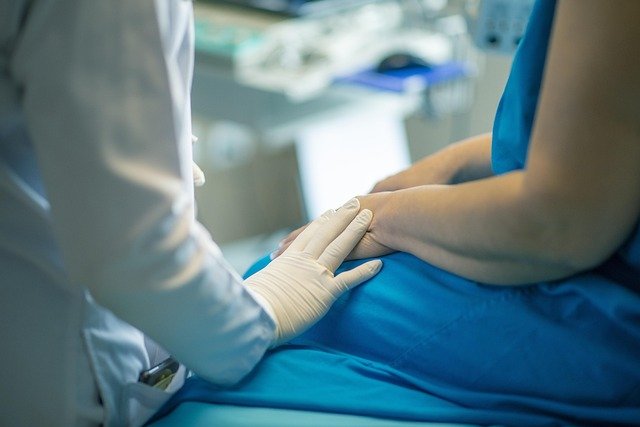Explore Medical Assistant Training Opportunities in Switzerland
Switzerland's healthcare system is renowned worldwide for its excellence, making it an ideal location to pursue medical assistant training. Swiss medical assistants, known locally as "Medizinische Praxisassistenten" (MPAs), serve as vital links between patients and healthcare providers. They perform essential administrative and clinical duties that keep medical practices running smoothly. This comprehensive guide explores the diverse training pathways, educational institutions, and career benefits of becoming a medical assistant in Switzerland.

Discover Comprehensive Medical Assistant Training Programs in Switzerland
The Swiss educational system offers structured and thorough medical assistant training programs designed to meet the country’s high healthcare standards. The primary pathway is a three-year apprenticeship program that combines practical work experience with theoretical education. This dual education approach is characteristic of the Swiss vocational training system and ensures graduates are job-ready.
The curriculum typically covers medical terminology, anatomy, physiology, laboratory techniques, administrative procedures, patient care, and communication skills. Students also learn about the Swiss healthcare system, insurance protocols, and medical ethics. Many programs require proficiency in at least two of Switzerland’s official languages (German, French, Italian) to prepare assistants for the country’s multilingual environment.
To enter these programs, applicants typically need a completed secondary education (Sekundarschule or equivalent) and must secure an apprenticeship position with a medical practice or clinic. Some institutions may require entrance examinations to assess aptitude and basic knowledge.
Explore Various Medical Assistant Training Centers in Key Cities
Switzerland offers numerous high-quality institutions for medical assistant training across its major cities and regions. In the German-speaking region, the Berufsbildungszentrum (BBZ) in Zürich and the Bildungszentrum Gesundheit und Soziales in Bern are prominent training centers. These institutions work closely with local hospitals and medical practices to provide comprehensive theoretical education while students gain hands-on experience.
In the French-speaking region, particularly Geneva and Lausanne, the École Supérieure de Soins Ambulanciers and Centre de Formation Professionnelle Santé-Social offer excellent programs. These schools emphasize bilingual education, recognizing the importance of communication skills in multilingual healthcare settings.
The Italian-speaking canton of Ticino provides training through the Centro Professionale Sociosanitario, which tailors its curriculum to meet both national standards and regional healthcare needs. Each institution maintains close ties with healthcare facilities, ensuring that training remains current with evolving medical practices and technologies.
Regional medical associations also play a significant role in training oversight, often providing additional certification opportunities and continuing education programs for practicing medical assistants who wish to specialize or advance their skills.
Gain Practical Knowledge and Experience for Lifelong Benefits
The practical component of Swiss medical assistant training is particularly valuable, offering real-world experience that shapes competent healthcare professionals. During the apprenticeship phase, students typically spend 3-4 days per week at their workplace and 1-2 days at their educational institution. This structure allows them to immediately apply theoretical knowledge in practical settings.
Students develop essential clinical skills such as taking vital signs, performing ECGs, drawing blood, administering injections, assisting with examinations, and managing laboratory specimens. They also master administrative tasks including appointment scheduling, record-keeping, billing, and insurance processing. These combined skills make Swiss-trained medical assistants highly versatile professionals capable of managing both patient care and practice operations.
The benefits of this comprehensive training extend far beyond graduation. Medical assistants from Switzerland are highly regarded internationally, with certification recognized in many European countries. Career advancement opportunities include specialization in areas such as practice management, medical laboratory work, or radiology assistance. Some assistants pursue further education to become nurses or other healthcare professionals, building on their solid foundation.
Training Costs and Educational Institutions
The cost of medical assistant training in Switzerland varies depending on the institution and region. Unlike many countries, the apprenticeship model means students typically receive a modest salary during their training, which helps offset education costs.
| Institution | Location | Program Duration | Approximate Cost (CHF) | Language of Instruction |
|---|---|---|---|---|
| BBZ Gesundheit | Zürich | 3 years | 1,500-2,500 per year | German |
| Centre Professionnel Santé-Social | Geneva | 3 years | 1,200-2,000 per year | French/German |
| Centro Professionale Sociosanitario | Lugano | 3 years | 1,000-2,000 per year | Italian |
| Berner Bildungszentrum Pflege | Bern | 3 years | 1,400-2,300 per year | German/French |
| Berufsbildungszentrum | St. Gallen | 3 years | 1,300-2,100 per year | German |
Prices, rates, or cost estimates mentioned in this article are based on the latest available information but may change over time. Independent research is advised before making financial decisions.
While these fees cover tuition, students should also budget for textbooks, equipment, examination fees, and living expenses. Many cantons offer subsidies or scholarships for vocational education, and apprentices typically earn between CHF 600-1,200 monthly during their training, gradually increasing each year.
Career Prospects and Professional Development
Upon completion of training, medical assistants in Switzerland can expect starting salaries between CHF 4,200-4,800 per month, depending on the region and facility type. The Swiss healthcare system continually seeks qualified medical assistants, with particularly strong demand in private practices, outpatient clinics, and specialized medical centers.
Professional associations like the Swiss Association of Medical Assistants (SVA/ASMA) provide continuing education opportunities, specialty certifications, and networking resources. Many assistants ultimately specialize in areas such as pediatrics, geriatrics, or specific medical disciplines that align with their interests and strengths.
The combination of rigorous training, practical experience, and Switzerland’s excellent healthcare infrastructure creates medical assistants who are well-equipped to provide exceptional patient care while efficiently managing healthcare operations throughout their careers.
This article is for informational purposes only and should not be considered medical advice. Please consult a qualified healthcare professional for personalized guidance and treatment.




